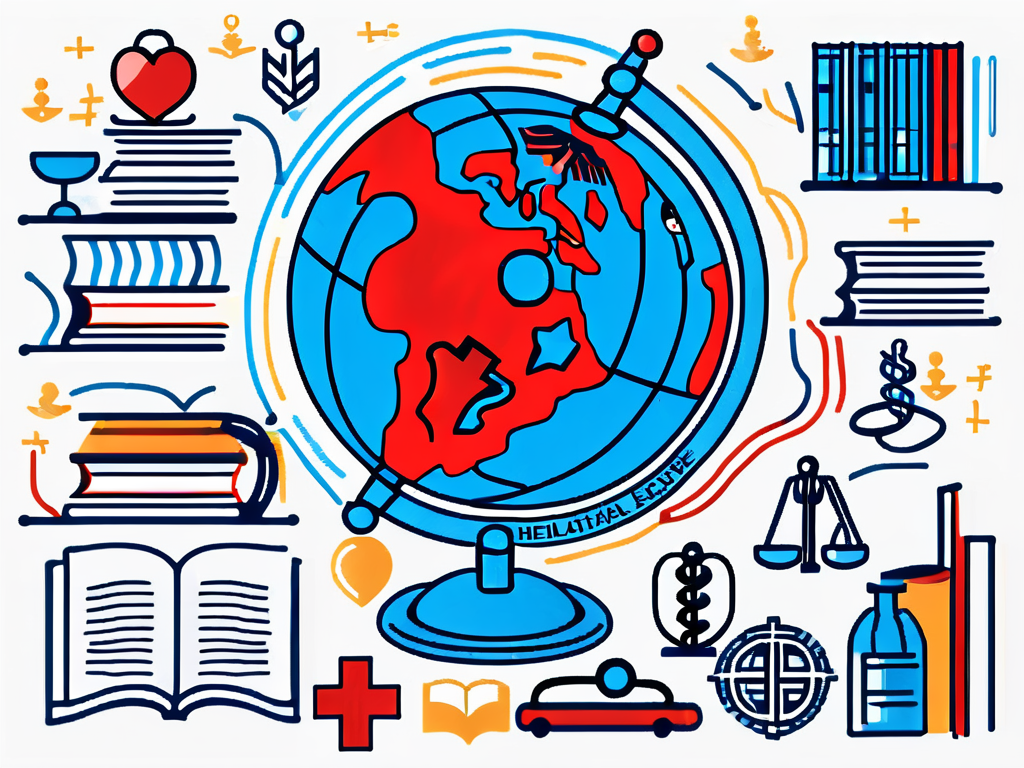The term ‘Bma’ in the context of International Education is an acronym for ‘Bachelor of Medicine, Bachelor of Surgery’, which are the two first professional degrees in medicine and surgery awarded upon graduation from medical school by universities in countries that follow the tradition of the United Kingdom. This article will delve into the depths of this term, providing a comprehensive understanding of its meaning, implications, and relevance in the field of International Education.
International Education is a broad concept that involves the processes of learning, teaching, and conducting research on a global scale. It encompasses a wide range of activities, from student and faculty exchanges to collaborative research projects, and from international curriculum development to the establishment of overseas campuses. In this context, the Bma degree plays a significant role as it represents a high level of education in the medical field, recognised internationally.
Origins of the Bma Degree
The Bma degree has its roots in the British system of education, which has had a profound influence on education systems around the world. The degree was first introduced in the United Kingdom in the 19th century, during a time when medicine was becoming increasingly professionalised. It was designed to provide a comprehensive education in both medicine and surgery, reflecting the belief that a well-rounded physician should have expertise in both fields.
Over time, the Bma degree has been adopted by many other countries, particularly those that were once part of the British Empire. Today, it is awarded by medical schools in countries as diverse as Australia, Canada, India, New Zealand, and South Africa, among others. This widespread adoption reflects the degree’s high standing in the international medical community.
Implications of the Bma Degree
The Bma degree is more than just a qualification; it carries significant implications for the individual who holds it, as well as for the wider medical community. For the individual, the degree represents a high level of knowledge and skill in the field of medicine. It signifies that the holder has undergone rigorous training and has met the stringent standards set by the awarding institution.
For the medical community, the Bma degree serves as a benchmark of quality. It ensures that those who hold the degree have a consistent level of knowledge and skill, regardless of where they have studied. This is particularly important in the context of International Education, where standards can vary widely between countries.
Role of the Bma Degree in International Education
The Bma degree plays a vital role in International Education. It provides a common framework for medical education, allowing for a degree of comparability between different countries’ education systems. This makes it easier for students and professionals to move between countries, as their qualifications are more likely to be recognised.
Furthermore, the Bma degree helps to promote a global perspective in medical education. By studying for a Bma degree, students are exposed to a wide range of medical practices and philosophies from around the world. This broadens their understanding of medicine, and prepares them to work in a variety of cultural and geographical contexts.
The Bma Degree and Global Mobility
One of the key benefits of the Bma degree in the context of International Education is the increased mobility it offers. Because the degree is recognised in many countries around the world, it opens up a wide range of opportunities for graduates. They can choose to practice medicine in a variety of countries, or to further their education through postgraduate study in a different country.
This mobility is not just beneficial for the individual; it also contributes to the global exchange of ideas and practices in the field of medicine. By moving between countries, Bma graduates bring with them their unique perspectives and experiences, enriching the medical communities they join.
Challenges and Opportunities of the Bma Degree
While the Bma degree offers many benefits, it also presents certain challenges. One of the main challenges is the variation in the length and structure of Bma programmes between different countries. This can make it difficult for students and professionals to move between countries, as their qualifications may not be directly comparable.


However, these challenges also present opportunities. The variation in Bma programmes reflects the diversity of medical practices and philosophies around the world. This diversity can be a rich source of learning and innovation, providing students with a broad and varied education.
Future of the Bma Degree
The future of the Bma degree in the context of International Education looks promising. As the world becomes increasingly globalised, the demand for internationally recognised qualifications like the Bma degree is likely to grow. This will open up even more opportunities for students and professionals, and contribute to the ongoing development of the global medical community.
In conclusion, the Bma degree plays a crucial role in International Education. It provides a common framework for medical education, promotes global mobility, and contributes to the exchange of ideas and practices in the field of medicine. Despite the challenges it presents, the degree offers many benefits and opportunities, and its future looks bright.
Enhance Your Teaching Career with IPGCE
As the Bma degree advances the global medical community, educators too can elevate their international teaching careers with IPGCE. The International Postgraduate Certificate in Education (iPGCE) is tailored for those aiming to achieve or who have already obtained Qualified Teacher Status. Overcome the barriers of stringent qualifications, limited career progression, professional isolation, and the need for a deeper understanding of global education systems. Join a network of professionals and enjoy the benefits of a flexible online study program that fits around your work commitments. With the iPGCE, you’re not just enhancing your qualifications; you’re boosting your chances for interviews, promotions, and salary increases, while connecting with a global community of educators. Don’t let inadequate credentials limit your potential. Join the UK’s #1 Teacher Training Course today and take the next step in your professional development journey.
